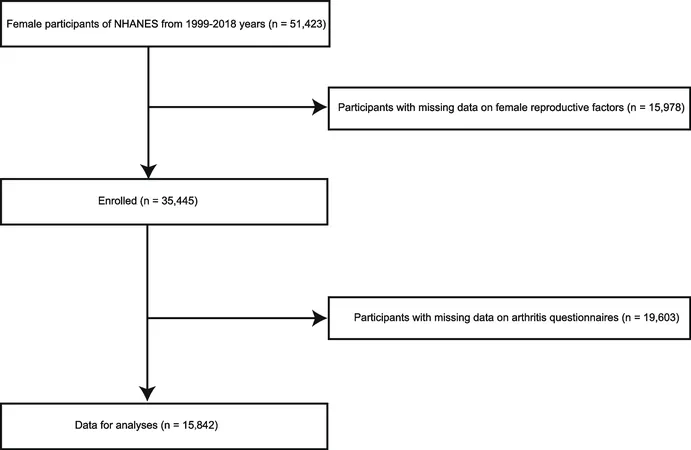
Revolutionary Fecal Microbiota Transplant Outshines Antibiotics in Battling C. Diff
2025-06-17
Author: Jia
Fecal Microbiota Transplant vs. Vancomycin: A Game-Changer?
In a groundbreaking study, fecal microbiota transplantation (FMT) has demonstrated noninferiority to the standard antibiotic vancomycin for treating Clostridioides difficile infections (CDI). With a remarkable 66.7% of FMT patients achieving clinical cure without recurrence, compared to 61.2% of those on traditional antibiotics, this could herald a new era in initial CDI treatment.
The Need for New Treatment Guidelines
The findings, published in the Annals of Internal Medicine, highlight a significant gap in current treatment protocols, which predominantly favor antibiotics like vancomycin or fidaxomicin. These conventional therapies often lead to recurrence rates between 10% and 20%, raising concerns about growing antibiotic resistance.
The study's authors argue that FMT not only showed a marginal numeric superiority to vancomycin but also has the potential to revolutionize the current approach to treating primary C. difficile infections.
Research Behind the Breakthrough
Led by Dr. Frederik Emil Juul from the University of Oslo, the multicenter trial spanned 20 hospitals and primary care facilities from June 2019 to March 2024. Researchers focused on 104 adults diagnosed with primary CDI and excluded patients with other complications.
Patients were split into two groups: 51 received FMT through a single enema of donor feces, and 49 were treated with vancomycin capsules. Notably, the study participants represented a realistic demographic, with median ages around 70 years and substantial health issues.
Striking Results: Clinical Cure and Recurrence Rates
The primary endpoint was clinical cure at 14 days, which meant having fewer than three stools daily or firm stools for 48 hours. FMT participants showed a 70.6% clinical cure rate, slightly behind the 77.6% seen in the vancomycin group. However, what stands out is the recurrence rate: just 5.6% of FMT patients relapsed compared to a concerning 21.1% in the vancomycin group.
When accounting for additional treatments, the FMT group boasted a staggering 78.4% success rate for clinical cure without recurrence, versus 61.2% for those on vancomycin.
Safety and Future Implications
Safety profiles were comparable, with 45.1% of FMT patients experiencing adverse events versus 34.7% in the vancomycin group. Following an interim analysis confirming noninferiority, the trial was recommended for early termination by the Data and Safety Monitoring Board, as continuing would have been unethical.
Despite its promising outcomes, the study's open-label design and reliance on clinical measures raise some eyebrows among experts.
Expert Opinions: A Balanced Perspective
Dr. Elizabeth Hohmann of Massachusetts General Hospital pointed out that while the study design is commendable, it lacks double-blinding, which could skew results.
Juul and his team maintain that the data support a shift in treating primary CDI with FMT first, reserving antibiotics for patients with persistent symptoms. Hohmann, however, remains skeptical about the immediate adoption of FMT as a frontline treatment in the U.S., emphasizing the need for further research and improved diagnostic tools for gut health.
Conclusion: A Beacon of Hope for CDI Patients?
The findings from this study not only challenge existing treatment paradigms but also open avenues for a more holistic approach to gastrointestinal health. As the quest for effective CDI treatments continues, FMT stands poised to reshape how we tackle gut-related diseases.



 Brasil (PT)
Brasil (PT)
 Canada (EN)
Canada (EN)
 Chile (ES)
Chile (ES)
 Česko (CS)
Česko (CS)
 대한민국 (KO)
대한민국 (KO)
 España (ES)
España (ES)
 France (FR)
France (FR)
 Hong Kong (EN)
Hong Kong (EN)
 Italia (IT)
Italia (IT)
 日本 (JA)
日本 (JA)
 Magyarország (HU)
Magyarország (HU)
 Norge (NO)
Norge (NO)
 Polska (PL)
Polska (PL)
 Schweiz (DE)
Schweiz (DE)
 Singapore (EN)
Singapore (EN)
 Sverige (SV)
Sverige (SV)
 Suomi (FI)
Suomi (FI)
 Türkiye (TR)
Türkiye (TR)
 الإمارات العربية المتحدة (AR)
الإمارات العربية المتحدة (AR)